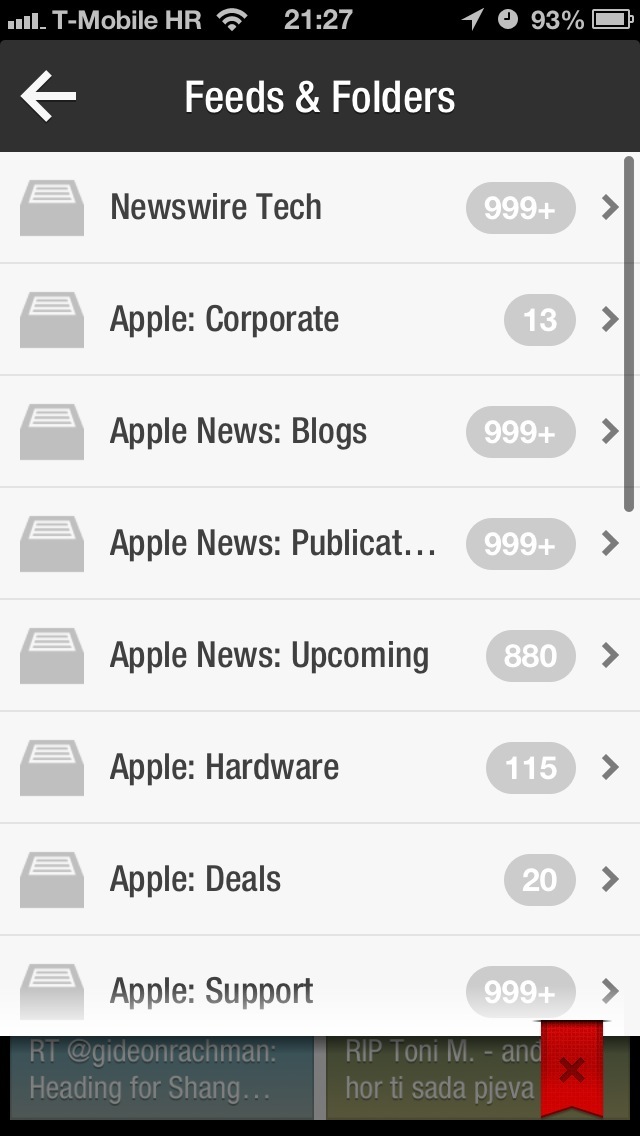
- #Chrome rss reader flipboard full
- #Chrome rss reader flipboard android
- #Chrome rss reader flipboard password
With these social features, you can find friends who are also using The Old Reader and share items with them directly through the service. More importantly, though, The Old Reader incorporates the popular social features that Google Reader had before it was revamped with Google+. Click on the drop-down menu next to it, and set it to enabled. The flag is set to its default value, which is disabled. You should see an option that is labeled 'Following feed in the sidepanel'. chrome://flags/following-feed-sidepanel 3.

Those who used the original Google Reader will notice the familiar colors and layout. Search for the word feed, or just use the following URL. You can, however, go to the mobile-optimized site from your smartphone or tablet.Ĭreated after Google Reader was redesigned in 2011, The Old Reader aims to be not just an alternative to Google Reader but a close replica of the original product. It's also worth noting that Curata is only available via Web browser, which means no native apps for your mobile device exist yet. Good thing is, the folks at Curata have been getting requests for the feature, and they do plan on incorporating an unread counter in a future release. Some people might enjoy such a feed, but the majority of users probably won't. This means that when you click on a feed within your Curata Reader, you'll see all of the recent posts from that site, including those you may have already read. For all of your RSS needs, this service should definitely be at the top of your list.Ĭurata is, however, short on features, with the biggest omission being an unread counter.
#Chrome rss reader flipboard android
It performs well and looks beautiful on the Web, and it syncs all of your activity seamlessly to native iOS and Android apps. Overall, Feedly is one of the best RSS readers out there. Flipboard ensures you can continue to access them even after. From now on, your feeds are accessible from the app.
#Chrome rss reader flipboard password
Choose Google Reader and sign in using your Google Reader username and password (normally, that would be your Gmail/Google Account credentials) Boom, you’re done. This is because Pocket has an open API that allows users and developers to create their own Pocket applications, integrate them into their existing apps, and share them with other Pocket users. Tap on the red Flipboard ribbon in the upper right. And for a more visual experience, you can try the magazine or card views. Pocket is integrated into over 500 applications across many platforms you may already use. If you're looking for something simple like Google Reader, you can use the headline-only view.

Its a protocol that allows an RSS reader to talk to your favorite websites and get updates from them. One of the best things about Feedly, though, is its versatility. RSS stands for really simple syndication. You can even share items via Twitter, Facebook, LinkedIn, and Google+. And, of course, you can always search for specific URLs, site names, or topics from within Feedly and subscribe that way, just as you would with Google Reader. These sites cover categories from Design to Android to Apple to Business, and you can subscribe to any of them individually, or as a group (category) with a single click. When you first launch it, Feedly offers up a menu of featured sites from all around the Web. I'd really like to stick to my existing native-client (Reeder), so here's hoping that they make it reasonable and everyone gets on-board.Previously available on desktops only via Chrome or Firefox plug-in, Feedly now has a completely cloud-based service that can be accessed from any browser. UPDATE: It looks like Feedly has "Normandy" waiting in the wings, but I'm not sure how access and fees will shake out for third-party developers. If someone were to roll a Google Reader API compatible feed subscription and sync service, I think they could recoup their investment pretty easily.
#Chrome rss reader flipboard full
Users of the Google Reader web UI need the full stack, and there are already alternatives, but there are many native-client users who don't need the full stack. Founded in 2011, we offer our audience everything from breaking news to reviews to award-winning. Project Gutenberg is an excellent place to read notable literature and fiction. * A native-client (iOS, Android, OS X, etc) for accessing your feed from your devices The Verge is about technology and how it makes us feel. As a result, a new wave of books tends to be made available each year. * A web UI for reading your feed from anywhere

* A backend for managing subscriptions, read/unread status, tagging, etc The conversation about "RSS readers" is really about several different components that are integrated in to a comprehensive product:


 0 kommentar(er)
0 kommentar(er)
